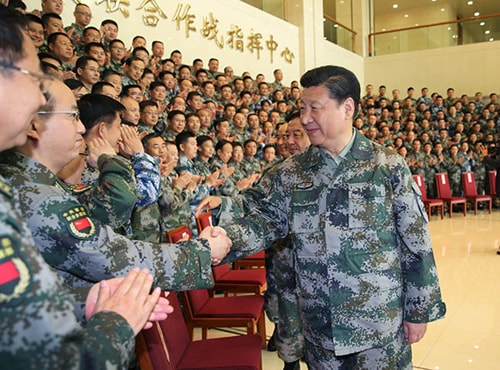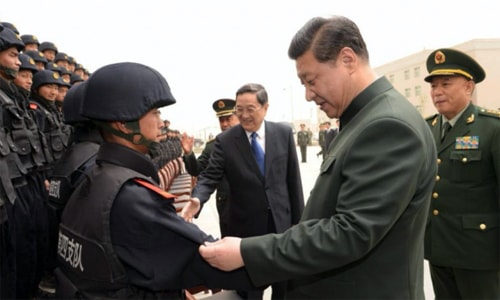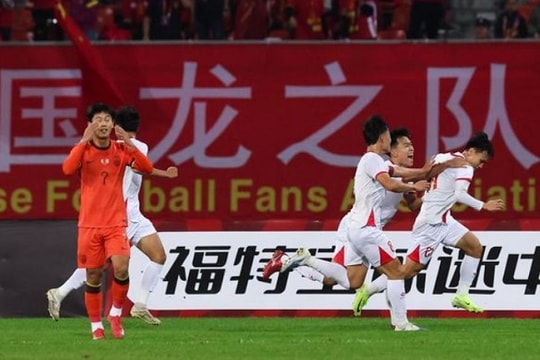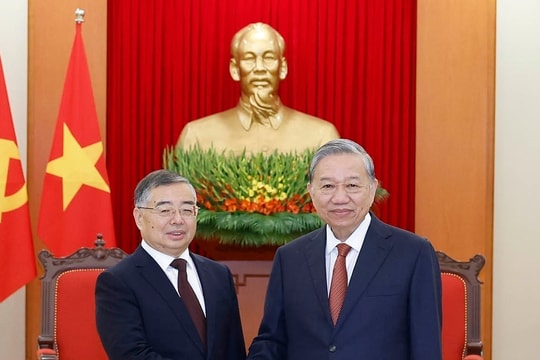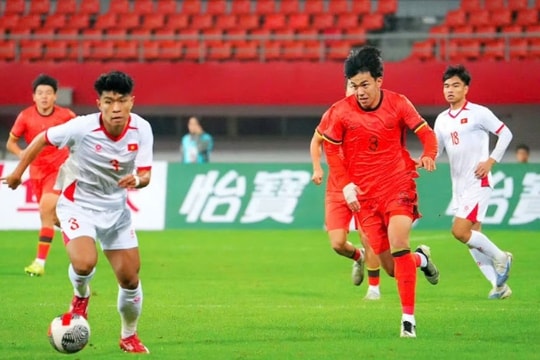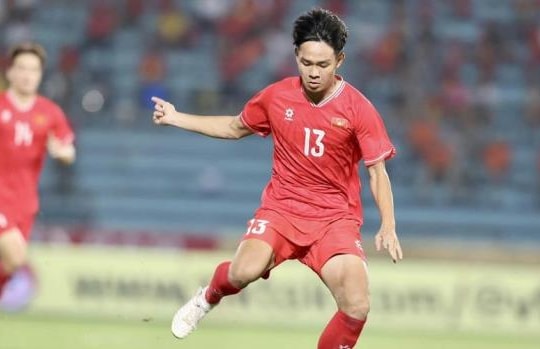'The sword and the gun' in Mr. Tap's campaign to fight tigers and flies
China's president is taking drastic measures to tighten his grip on the military and police to push through a campaign against corruption.
|
Mr. Tap shook hands with senior Chinese military generals. Photo:Xinhua. |
Chinese President Xi Jinping yesterday made the most drastic statement in his anti-corruption campaign, asserting that "whenever a tiger raises its head, it will be beaten; whenever a fly flies around, it will be smashed" in a speech broadcast live on television.
Analysts say this statement is the clearest sign yet that Mr. Tap will carry out his "anti-tiger, anti-fly" campaign to the end, ready to take down the highest-ranking corrupt officials, in the context that he is firmly in control of the military and police, the two core forces that consolidate this leader's power, according toFT.
The Chinese President has recently made a series of strong moves to assert his power over the military and police, with carefully prepared and organized measures to force the armed forces to absolutely obey the leadership of the Central Military Commission, the agency he heads.
A series of speeches, loyalty pledges and moving songs by military generals and top police officials have been broadcast on Chinese media in recent weeks, conveying the message that Mr. Xi is the supreme commander of the country's armed forces.
The most prominent piece of information reported in Chinese state media on January 10 and 11 was Xi's speech at a celebration of the People's Armed Police, in which he demanded that the force pledge absolute loyalty to the Chinese Communist Party and perform well in its task of controlling social unrest.
The armed police force has just been "monopolized" by Mr. Tap with a resolution to concentrate command and leadership in the hands of the Central Military Commission, stripping the State Council and local governments of the right to mobilize and deploy armed police units. With this resolution, from January 1, any large-scale deployment of armed police beyond the local scope must be approved by the Central Military Commission.
Xi’s move to centralize the armed police came after concerns that the force could be misused by corrupt local officials to serve their own ends and challenge Beijing’s authority. The armed police were deployed by former Chongqing party chief Bo Xilai to surround the US consulate in Chengdu in pursuit of fugitive police chief Wang Lijun.
Former security czar Zhou Yongkang, who was sentenced to life in prison for corruption, is said to have intended to use the armed police force to serve his power grab, according toSCMP.
The pledge of allegiance by 1.5 million members of the armed police to Mr. Xi comes as the military is undergoing its biggest reform in decades, aimed at punishing corrupt generals, streamlining the command structure, and enhancing combat capabilities and political credibility.
|
Mr. Tap inspected a Chinese armed police unit. Photo:China Daily. |
“Maintaining discipline is a big goal, as is enhancing loyalty to Xi. Anyone holding a gun must be absolutely loyal to Xi and the Communist Party,” said Liu Bojian, an expert at the East Asian Institute at the National University of Singapore. “It is a process of firmly centralizing power in the military.”
Last November, Mr Xi received a pledge of “absolute loyalty, honesty and trustworthiness” from the People’s Liberation Army (PLA). The PLA also received new instructions that “the military must follow the command of President Xi, obey orders and never make him worry”.
The Chinese president began 2018 with a speech demanding that the military "fulfill the tasks entrusted by the party and the people in the new era." Liu said that reining in the military and reforming it into a modern fighting force is one of Xi's most urgent goals, because what he inherited after taking office in 2012 was a military rife with corruption and even factionalism.
To address this situation, Mr. Xi has targeted the military's top command structure in a campaign to "slay tigers and swat flies." The "big tigers" who have been punished include General Xu Caihou and Guo Boxiong, who served as vice chairmen of the Central Military Commission, which oversees the entire PLA.
"The army is the gun, the police are the sword. Xi wants to have highly centralized control of the gun and the sword himself," said Willy Lam, a politics professor at the Chinese University of Hong Kong.
Most recently, China's Central Commission for Discipline Inspection announced that it would transfer General Fang Fenghui, former chief of the general staff of the PLA and former member of the Central Military Commission, to military prosecutors for handling corruption. The general is likely to be tried and convicted of giving and accepting bribes in a military court.
"There are still some Xu Caihou and Guo Boxiong in the military, so Xi Jinping doesn't feel really secure. That's why he's doing everything to show his firm control of the armed forces," said Professor Lam.

